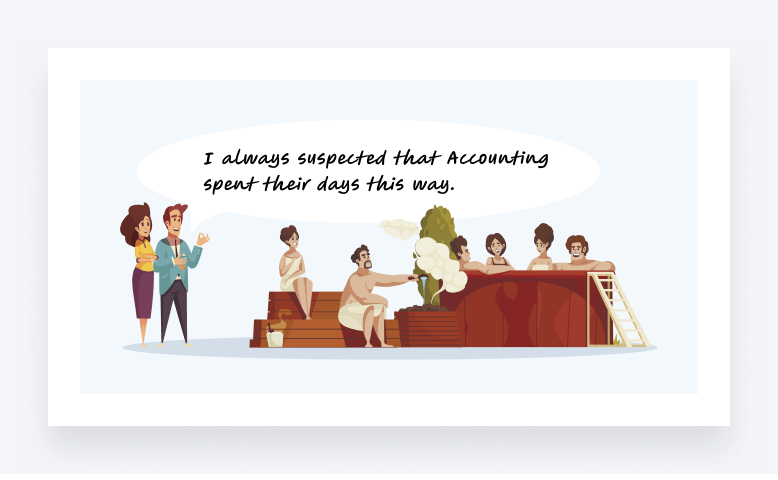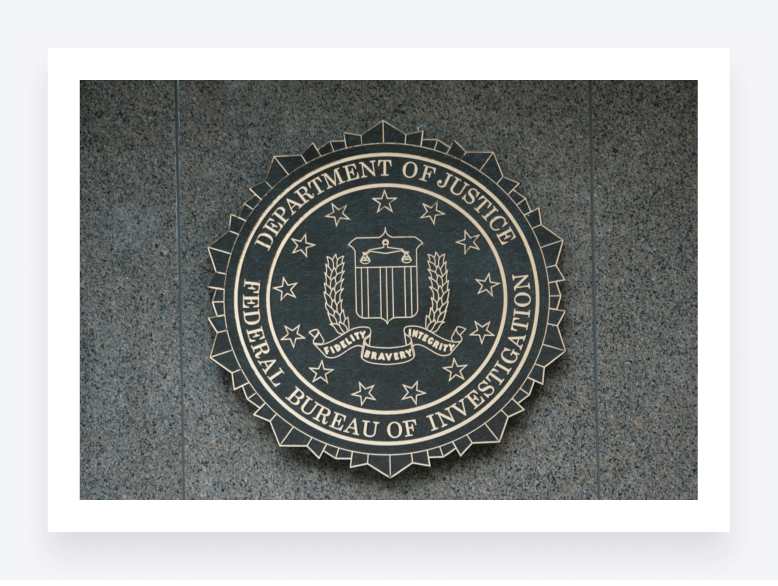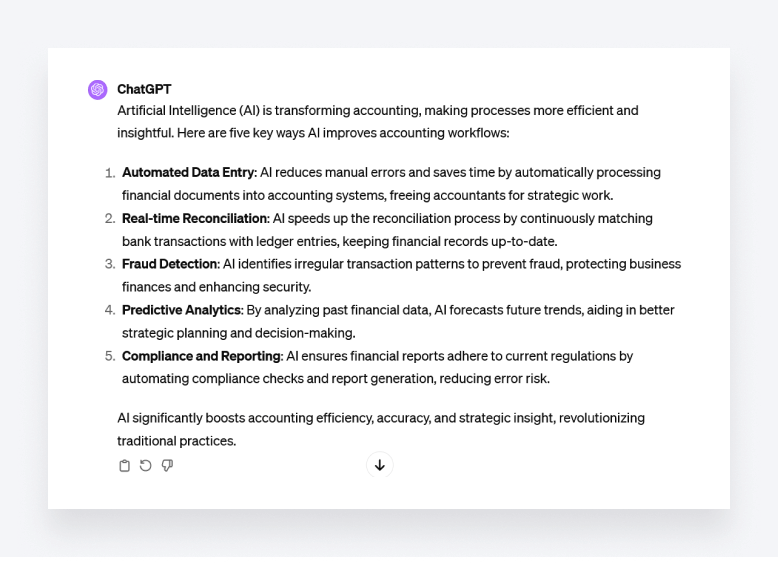
Outsiders often see accounting as a mundane, number-crunching profession but little do they know that it’s an industry brimming with fascinating facts.
So, whether you’re gearing up to host a trivia night or looking for interesting info to share about your profession, you’ve come to the right place. Here are 20 fascinating accounting facts.
1. Ancient beginnings
Dating back to ancient Mesopotami, the oldest accounting records date back more than 7,000 years ago, making accounting one of the world’s oldest professions.
These ancient documents show lists of received and traded goods and a list of expenditures. Ancient Mesopotamians also used accounting to record and track the growth of herds and crops.
2. Accounting and rock n’ roll royalty
Thanks to two of classic rock’s biggest stars, accountants have a little rock n’ roll power running through their veins.
As he learned to strut his stuff as The Rolling Stones’ frontman, Mick Jagger attended the London School of Economics on a government grant to study finance and accounting. At the time, he lived with Kieth Richards and performed gigs on weekends. Though he called his decision to drop out “totally stupid,” it clearly worked out.
Feeling pushed by his parents, Led Zeppelin lead singer Robert Plant was training to be an accountant as a teenager. However, much to his parents’ dismay, Plant left home at 17 and bounced between bands while doing odd jobs until he met Jimmy Page in 1968. In 2020, he found an unopened letter from his mom written in 1967, pleading for him to return home and to the accounting office that previously employed him.
3. It’s currently one of the most in-demand remote jobs
According to recent research, one of the top 10 career categories for fully remote jobs is the accounting and finance category. Due to more and more Baby Boomers retiring, there’s currently a shortage of CPA-certified accountants, prompting companies to offer more flexible working arrangements for qualified accountants.
This accounting shortage has led firms to practice management software, like TaxDome, to help them do more with less. With practice management software like this, firms can automate tasks, client communication, and payment collection, so they don’t need to hire as many staff members to get the job done.

4. The fall of Al Capone
Forensic accounting played a pivotal role in the downfall of one of America’s most notorious gangsters, Al Capone.
While Capone had successfully evaded charges for his numerous crimes, the U.S. Treasury Department, particularly the IRS, spearheaded an effort with Frank J. Wilson to conduct an exhaustive investigation into Capone’s complex and concealed financial records. The investigation revealed substantial unreported income, leading to charges of tax evasion and a conviction in 1931 that sentenced him to 11 years in prison.
5. You can fight crime too
Forensic accountants are pivotal in fighting all sorts of crimes, including securities fraud, cybercrime, public corruption, and health care fraud. They’re so vital, in fact, that the Federal Bureau of Investigation (FBI) employs approximately 2,000 accountants.

6. And the Oscar goes to…
From federal investigations to the glitz and glamor of Hollywood, accountants have a wide array of jobs. The Oscars award the year’s greatest film productions, performances, and designs each year. Since 1935, accounting giant PricewaterhouseCoopers (then Price Waterhouse) has been responsible for counting the votes.
The process takes approximately 1,700 hours, as the votes are hand-counted by an accounting team at a secret location.
7. Inventing bubble gum
In 1928, while working as an accountant at Fleer Chewing Gum Company in Philadelphia, Walter Diemer was experimenting with new gum recipes and playing around with different formulations in an attempt to create a new chewing gum. He discovered a mixture that was less sticky than regular chewing gum and stretched more easily. This elasticity was the key to what would become bubble gum’s defining characteristic – the ability to blow bubbles.
Bubble gum’s pink color happened by circumstance, as it was the only dye available in the factory at the time. However, in the end, pink became bubble gum’s trademark color, and Diemer taught salespeople how to blow the pink bubbles so they could demonstrate this unique feature to potential buyers.

8. The concept of zero
Though many ancient cultures had a concept and expression for nothingness, the Hindu culture is credited with creating the zero we know today. In the 5th century CE, the Sanskrit word “śūnya” was used for zero. In the annals of scientific history, the renowned astronomer and mathematician Aryabhata is frequently credited with developing the numeral ‘0’.
9. Breaking barriers
Over the years, many accountants have broken social and professional barriers within the industry. One such example is Christine Ross. She achieved a historic milestone in the summer of 1898 when she took the CPA exam and earned the second-highest score in her group, making her the first female CPA in the United States.
In 1921, John W. Cromwell, Jr. traveled from his home in Washington, DC to New Hampshire because it was the only state that would allow him to sit for the CPA exam. After passing, he became the first Black CPA in the US and eventually became an accounting professor at Howard University, where he rose to the lever of the university’s comptroller.
Mary Thelma Washington was the breaker of many barriers. She was the only Black woman in Northwestern University’s School of Business during her time in college. She started an accounting firm to support small, Black-owned businesses during that time. In 1943, she became the first Black woman to become a CPA, and her accounting firm (Washington, Pittman, and McKeever) became one of the biggest Black-owned accounting businesses in the country.
10. The father of accounting
Modern accounting was born out of the Renaissance, thanks to Luca Pacioli. Referred to as “the father of accounting,” the Italian mathematician and Franciscan friar is credited with publishing the first work on double-entry bookkeeping. Most of the accounting principles he describes in his work are still used today.
If that’s not enough of a cool fact, add that he also collaborated with his friend, Leonard da Vinci, whom he also taught mathematics.
11. The oldest name
Further illustrating the long history of accounting, the earliest surviving documentation of a name belongs to an accountant. “Kushim” was an accountant approximately 5,000 years ago in the ancient Mesopotamian city of Uruk — now near modern-day Samawah, Iraq. Kushim’s name appears on 18 gray tablets that recorded transactions at the Temple of Inanna. It’s believed that the appearance of Kushim’s name on these tablets reflects a signing off on the record’s content.
12. Before writing
Before accountants wrote in ledgers, they used clay tokens to keep track of merchandise. With each token representing an item and quantity, accountants knew that a cone token meant a small measure of grain and a spherical token meant a larger portion of grain.
The use of these tokens is believed to have played a significant role in the development of writing. As trade and commerce became more complex, there was a need for more detailed record-keeping. This led to the tokens being stored in clay envelopes, which later evolved into clay tablets with impressions of the tokens. Eventually, these impressions became a cuneiform script, one of the earliest known systems of writing.
13. AI is making accounting easier
Artificial intelligence (AI) is helping to improve the accounting industry. It’s streamlining numerous processes, enhancing the accuracy and efficiency of financial management, and offering financial managers deeper insights into trends, anomalies, and patterns.
Leading accounting software companies are using AI to offer customers cash-flow predictions, automated categorization, AI-powered receipt scanners for easier expense tracking, and automated audit and fraud protection.

TaxDome, for example, offers firms powerful AI features like its recently released AI-powered reporting. This tool allows firms to quickly gather valuable insights into their revenue streams, and productivity, and generate engaging visualizations that make data-driven decisionmaking easier. To learn more about the full scope of TaxDome’s AI-powered reporting, watch the video below.
14. International recognition
There are international recognition days for donuts, dogs, and even beer. So, of course, there should be an International Accounting Day! On November 10th, shake your accounting colleague’s hand because it’s your day.
15. Fighting taxes
In the late 18th century, Britain was engaged in the costly Napoleonic Wars, which stretched the nation’s finances. There was a need for an effective way to raise revenue to fund the military conflict, so Prime Minister William Pitt the Younger introduced what is credited as the first modern income tax in his 1798 budget. The progressive tax went into effect in 1799 and was levied on incomes over £60.
This inspired other nations, including the US, which used its first income tax in 1862 to raise funds to fight the Civil War. Income tax was then solidified into the economy with Congress passing the 16th Amendment in 1909 and its ratification in 1913.
16. Bonjour comptable!
The term “accountant” traces its origins to the Latin word “computare,” meaning to compute or calculate, a root it shares with the word “compute.” This term evolved through the Old French “compter,” reflecting the role’s focus on financial record-keeping and calculations.
17. The first CPA exam
In December of 1896, the first CPA exam was held in New York. The first three to pass this exam were Joseph Hardcastle, William H. Jasper, and Edward C. With an average score of 87 through the exam’s four parts, at age 69, Hardcastle earned the highest score of the three.
18. There’s an Accounting Hall of Fame
That’s right, accountants have their own Hall of Fame. Established in 1950 at Ohio State University (OSU), the Accounting Hall of Fame regularly recognizes individuals who have made or are currently making significant contributions to the advancement of accounting.
There are currently 117 inductees, including:
- George Oliver May (1950), who wrote an estimated 106 articles for professional journals and served as the first Dickinson Lecturer at Harvard
- Yuji Ijiri (1989), who was a four-time recipient of the AICPA-AAA’s Notable Contributions to Accounting Literature Award
- Leslie French Seidman (2020), who launched the Women’s Accounting Leadership program and wrote the first three editions of Financial Instruments: A Comprehensive Guide to Accounting and Reporting
19. The largest accounting lesson
Accounting conferences are held all around the world for professionals to network and learn more about their field. However, the largest accounting lesson ever was held on September 9th, 2023, and had 3,933 people in attendance.
Held in Jaipur, India, by The Institute of Chartered Accountants of India, the lesson was attended by students from schools all around the city. It was titled “Career in Accounting & Finance for Youth and Super Mega Career Counselling Programme.”
20. A career with longevity
The oldest recorded name and largest accounting meeting aren’t the only world record-holding accounting facts. Initially set in 1999, the longest-running career in accounting began in 1929. Harilal D. Maniar continues to practice accounting, looking after accounts and income tax matters from 11 am to 6 pm on working days.
Conclusion
From its ancient origins to modern technological advances, accounting is a profession rich with intriguing facts, trivia, and historical significance. These fascinating details not only enhance our understanding but also deepen our appreciation for accounting.
Far from being mere number-crunching, accounting influences many facets of our lives. So, when it’s time to celebrate International Accounting Day, let’s spare a kind thought for the accountants in the world who keep our society humming.
One more bonus fact! Join a live demo of TaxDome to discover how it’s helped firms scale their businesses and grow by using its customizable automated pipelines, secure client communication and document management system, and user-friendly mobile app that makes the bookkeeping and tax return process easy for both accountants and clients.

Thank you! The eBook has been sent to your email. Enjoy your copy.
There was an error processing your request. Please try again later.
Download our eBook to get the answers



